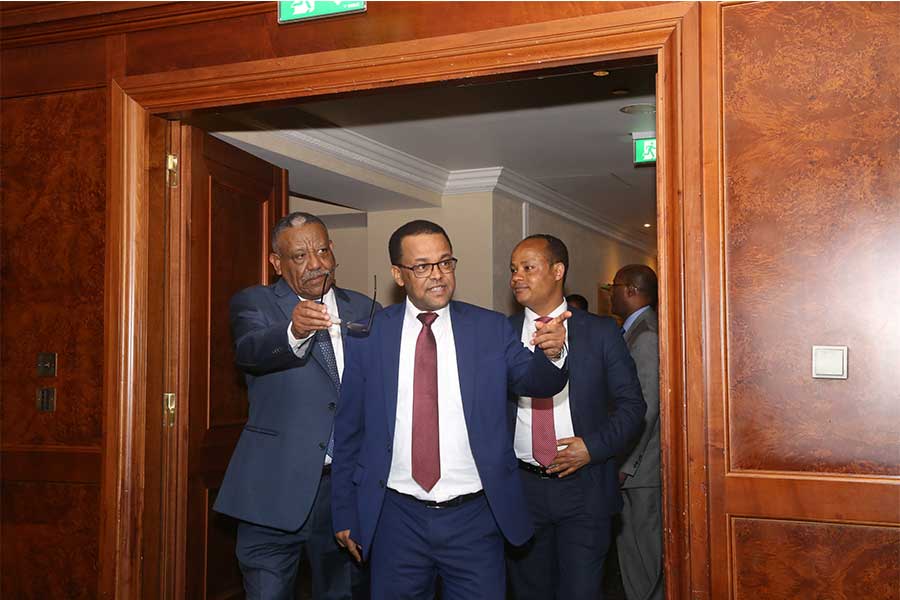
In an effort to strengthen the trade relationships between their countries, Ethiopia and Djibouti have built an 80Km road project that connects the port city of Tadjoura to the northeastern part of Ethiopia. The project was inaugurated last week.
The road project, which is nine metres wide, cost 159 million dollars and was fully financed by the Kuwait Fund for Arab Economic Development.
The funding was dispersed in three phases. The first, 28 million dollars, was provided in 2010, while a second loan, 52.5 million dollars, was provided in 2013. The third funding agreement that amounted to 78.2 million dollars was signed in 2016 between the Republic of Djibouti and the Kuwait Fund.
The inauguration for the project was attended by Dagmawit Moges, Ethiopia’s minister of Transport, and Ismaïl Omar Guelleh, president of Djibouti.
“The road will have a significant impact on the social and economic life of the locals,” said Dagmawit.
The road will speed up the processing of commodities such as potash through the Tajura Port, according to Ismail Omar.
The Tadjoura Port was inaugurated on June 15, 2017, at an official ceremony led by Guelleh and Aboubaker Omar Hadi, chairman of Djibouti Ports & Free Zones Authority, the governmental body that oversees ports in the country.
Located in north-central Djibouti and sprawling across an area of over 30 hectares, the Port is equipped with facilities, including a potash handling system with a capacity of handling 2,000tn an hour.
“The northeastern part of the country is highly known for its deposit of potash,” said Endalkachew Tsegaye, communication director at the Ministry of Transport. “The road will help us use the Port and greatly facilitate the import-export trade of the country.”
Around 97pc of Ethiopia’s import-export cargo has been coming through Djibouti's ports since the 1990s. The rest are shipped through Port Sudan and Berbera, respectively. Until last year, imported freight of Ethiopia stood at 13.5 million tonnes, while exports reached more than 1.8 million tonnes a year.
Ethiopia had been using Assab and Massawa ports in Eritrea, both of which are close to the northern parts of the country before the late 1990s until diplomatic relations between the countries deteriorated.
“Even though we haven’t currently prepared to use Tadjoura Port, the road will create an option for us,” said Roba Megersa, CEO of Ethiopian Shipping & Logistics Services Enterprise, which operates 11 vessels, of which nine are dry cargo ships with a carrying capacity of 400,000tn. “If the Port fulfills our standards for the transportation of cargo, we will use the route,” Roba added.
Henok Semaw, an assistant professor and dean of business and economics at Harmaya University, believes that the construction of the road project will allow the country to make use of an alternative port.
“It also helps the country to use the natural resources in the area and provide the product on time with the competitive price,” he said. “This can contribute to the nation’s economy by lower prices of goods.”
PUBLISHED ON
Nov 09,2019 [ VOL
20 , NO
1019]

Viewpoints | Oct 19,2019

Radar | Jul 21,2024

Radar | May 13,2023

Fortune News | Oct 23,2021

Radar | Nov 09,2024

Radar | Jul 09,2022

Fortune News | Jun 23,2019

Commentaries | Aug 21,2021

Radar | Aug 10,2019

Radar | Jun 29,2025

Dec 22 , 2024 . By TIZITA SHEWAFERAW
Charged with transforming colossal state-owned enterprises into modern and competitiv...

Aug 18 , 2024 . By AKSAH ITALO
Although predictable Yonas Zerihun's job in the ride-hailing service is not immune to...

Jul 28 , 2024 . By TIZITA SHEWAFERAW
Unhabitual, perhaps too many, Samuel Gebreyohannes, 38, used to occasionally enjoy a couple of beers at breakfast. However, he recently swit...

Jul 13 , 2024 . By AKSAH ITALO
Investors who rely on tractors, trucks, and field vehicles for commuting, transporting commodities, and f...

Jul 12 , 2025
Political leaders and their policy advisors often promise great leaps forward, yet th...

Jul 5 , 2025
Six years ago, Ethiopia was the darling of international liberal commentators. A year...

Jun 28 , 2025
Meseret Damtie, the assertive auditor general, has never been shy about naming names...

Jun 21 , 2025
A well-worn adage says, “Budget is not destiny, but it is direction.” Examining t...